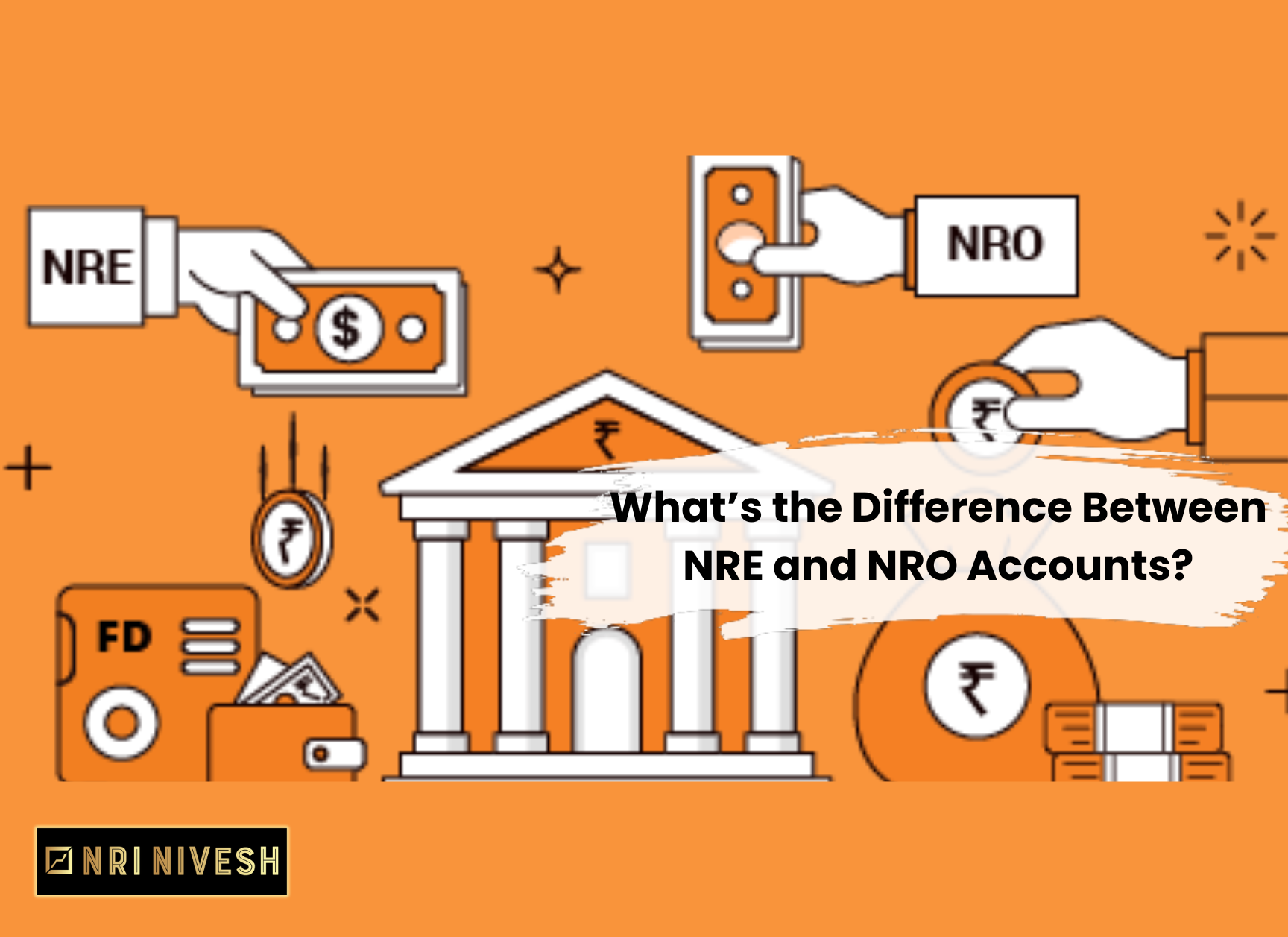When you become a Non-Resident Indian (NRI), one of the first financial changes you’ll face is dealing with Indian banks. You can’t continue using your regular savings account in India once your residential status changes. Instead, you’ll need to choose between two specialised accounts: NRE (Non-Resident External) and NRO (Non-Resident Ordinary). Both are designed to help NRIs manage their funds across borders, but they differ significantly in purpose, tax treatment, and flexibility.
If you’re unsure which one fits your needs, this guide will make it clear.
Understanding the Purpose
Think of the NRE account as your bridge from abroad to India. It’s designed to deposit foreign earnings in India and maintain them in rupees. So if you’re earning in USD, AED, EUR, or any foreign currency, this is your go-to account to remit and save money in India. The best part? The interest earned on NRE deposits is tax-free in India, and both the principal and interest are fully repatriable—you can send them back abroad anytime.
In contrast, an NRO account helps you manage your Indian income while living overseas. If you own property in India and earn rent, have dividend payouts, or still draw a pension, this is the account where that income should go. The funds in an NRO account are held in Indian rupees, and unlike NRE, the interest earned is taxable in India. Also, there’s a limit of $1 million per financial year for repatriation, and it requires documentation.
Tax Treatment and Compliance
One of the biggest factors in choosing between these accounts is taxation. NRE accounts offer tax-free interest, making them highly attractive for NRIs looking to grow their money in India without tax burdens. However, only funds earned abroad can be deposited in an NRE account—so if you have Indian income, that route is closed.
NRO accounts, meanwhile, attract TDS (Tax Deducted at Source) at 30% on interest earned. Even if your total income is below the taxable threshold, TDS will still be deducted unless you apply for a lower deduction certificate or file for a refund later. That said, the NRO account remains essential if you’re receiving any kind of Indian-source income.
Repatriation Rules: Can You Send Money Abroad?
Money in an NRE account can be freely sent back to your country of residence—this is what we call full repatriability. For NRIs who may want to invest in India now but repatriate funds later, this is a major advantage.
On the other hand, funds in an NRO account can only be repatriated up to $1 million per year, subject to proper documentation and compliance under FEMA. You’ll need to submit a Form 15CA/CB through a chartered accountant in India before transferring money abroad from your NRO account.
Which Account Should You Choose?
In most cases, NRIs find themselves using both accounts for different purposes. Your NRE account will help you remit and save foreign earnings, while your NRO account will help you manage income and bills linked to India—like utility payments, property maintenance, and local taxes.
Also, it’s worth noting that joint account rules differ: NRE accounts can only be held jointly with another NRI, whereas NRO accounts can be held jointly with a resident Indian (such as a parent or spouse), offering more flexibility for family arrangements.

Final Word from NRI Nivesh
Opening the right bank account is the foundation of every NRI’s financial journey. It impacts your compliance, tax filing, and ease of investing or repatriating funds later. At NRI Nivesh, we don’t open bank accounts—but we do help NRIs understand these crucial decisions during our financial literacy workshops and BAATCHEET sessions abroad.
Whether you’re setting up from scratch or switching after years of being abroad, we make banking easier to understand—so you can take action with confidence.
Join Our Upcoming Financial Literacy Session →
Real stories. Real advice. Backed by experts





